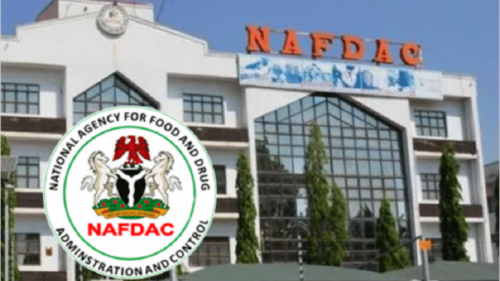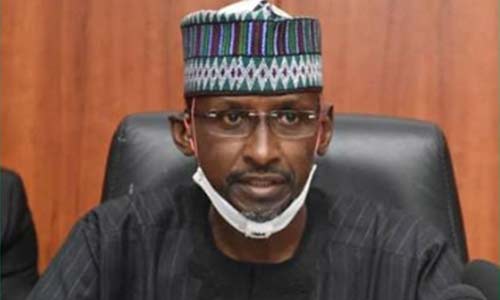NEWS UPDATES 20/03/2023
NAFDAC Moves to Develop Chemical, Biological Weapon Testing Capability

The National Agency for Food and Drug Administration and Control (NAFDAC) has said Nigeria was being considered for the Organisation for Prohibition of Chemical Weapons (OPCW) laboratory designation status, a move that would enable it use laboratories to test substances associated with biological and chemical weapons.
The agency said the implication was that all chemicals associated with weapons of destruction, both biological and chemical, could be tested in the NAFDAC laboratory.
A statement by the Resident Media Consultant, Sayo Akintola, at the weekend, stated that Nigeria and Kenya were the only two countries in Africa chosen for consideration by the global body.
The statement stated that the move was revealed when experts from the Organisation for Prohibition of Chemical Weapons, (OPCW) visited the NAFDAC’s central laboratory in Oshodi, Lagos, recently, for inspection and assessment of facilities to be deployed for the global assignment.
According to Akintola, officials of OPCW based in The Hague came with some experts on laboratory assessment from the Finnish Institute of Verification of Chemical Weapons Convention, (FERIVIN) based in the University of Helsinki.
He quoted the leader of the team, Dr. Roman Warchol, as having expressed satisfaction with the facilities provided by NAFDAC, saying they were comparable to whatever could be found anywhere in the advanced economy of the world.
Warchol, said they came to Nigeria to assess the NAFDAC’s laboratory and see the level of competency and equipment available for possible designation of the laboratory.
“I am very happy and satisfied with what Ive seen here,” the OPCW top official was quoted to have said.
While welcoming the team, the Director General of NAFDAC, Prof. Mojisola Adeyeye, explained that NAFDAC had been on the project for about four years.
“Except for the COVID-19 period which really affected activities,” she added.
We are going on proficiency testing and we have gone from ‘Participation’ to ‘Very Good’ which is the highest level in the OPCW’s assessment,” she said.
The NAFDAC boss said she was excited because the experts from Hague and Helsinki were overwhelmed with the Agency’s facilities, adding that they were highly impressed by the competency of NAFDAC staff and the level of understanding.
“We did all our presentations. There was little or no questions. All we are now discussing is level of improvement, areas that we should improve to make it a bigger say. They were overwhelmed by the commitment of the Agency and the National Authority for Chemical and Biological Weapons Convention (NAC&BWC) in Nigeria and the federal government to the project,” she enthused.
Adeyeye further explained: “We are not at war, yes, but we are not only to be testing for Nigeria. We are not only going to be testing the samples that will be used in Nigeria.
“In Africa, we have only two sites – Nigeria and Kenya – that are being considered for this. We will cover the West Africa and some parts of Africa.
“Wherever there are skirmishes or the use of weapons, it might not only be war situation, but the tendency also that there could be an explosive somewhere, we could be invited to sample those things and then test for the possibility of using harmful chemicals that could be lethal to people.
“If for example, in Niger State or anywhere for that matter, there was an explosive, we sample it and see what is the byproduct to ascertain if it would be lethal to people when they come in contact to them.’’
Adeyeye said in October 2018, NAFDAC participated in the CCACT-097.
She said the agency has now improved to the score of very good in our last participation CCACT-15 in October 2022.
She further disclosed that the federal government through NAC&BWC provided an intervention fund in February 2020 valued at about N735 million to provide various equipment for the laboratory, stressing that through internally generated revenue, more equipment pieces were added. Since then, the agency had used her IGR to add more equipment pieces.
She said that the agency would also expand the laboratory space for OPCW in the new building to be constructed soon.
“The assistance and contribution of the United Kingdom in assessing and improving the technical competence of laboratory in OPCW member States in Africa and Group of Latin America and Caribbean Countries (GRULAC)GRULAC regions which we benefited has helped since 2021 to improve our performance and technical capacity,” she said, adding that NAFDAC staff participated in the mentorship programme by Finnish Institute for Verification of the Chemical Weapons Convention VERIFIN Helsinki.
Adeyeye said this was done virtually until their physical training in February 2023. According to her, these efforts helped to improve technical ability of staff and their reporting techniques.
Due to importance of the OPCW project to the Agency and the efforts of the international partners, Adeyeye said the oversight office was moved in January 2023 to Director General Office to underscore the importance for the country.
“We are highly indebted to the International Cooperation and Assistance Division, OPCW for facilitating the Memorandum of Understanding and implementing the assistance,” she said, adding that the National Authority has been proactive at endorsing NAFDAC’s application for CCACT-testing.



